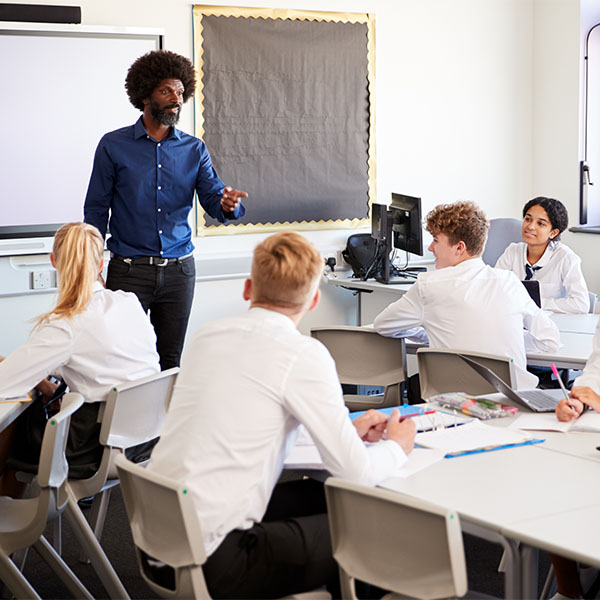How much does the relationship between students and their teacher matter?
An interesting meta-analysis, which collated the findings from hundreds of studies, found that classroom learning actually was not impacted by how highly students rated their teachers. This suggests that, if teacher-student relationships do matter, their effects do not lie in popularity. So, what impact do teacher-student relationships have?
The positive impact of good teacher-student relationships
Peer acceptance
Recent research found that teacher-student relationships have a profound impact on the way in which a student is perceived by their peers.
When a classmate recognises that a student has a negative relationship with their teacher, they often take this to mean that the teacher does not accept the student. This can subsequently lead to classmates modelling the teacher’s negative behaviour towards this student; hence they will too avoid engaging with them.
Peer rejection at a young age can lead to a number of negative outcomes. For example it may cause a lack of self-esteem, which can affect how the student interacts with others outside the classroom. Therefore, it is extremely important that teachers try to build positive relationships with each of their students and that the classroom is seen as an inclusive environment.
High career expectations
One particular study sought to investigate the impact that teacher-student relationships have on career expectations. The researchers found that teachers and their students having positive relationships could enhance a student’s sense of belonging and understanding of self, which in turn resulted in them setting higher career aspirations.
Having high careers aspirations and the self-belief that you can improve and achieve is essential for maximising success.
For example, in a recent study, researchers asked participants to cycle as hard as they could for 4000m. Later, the participants were given the same instructions, but this time they had to ride against what they believed was an avatar of their previous ride. However, this avatar was actually going faster than they had before. Despite this, the participants kept pace. This shows that, if students are willing to push themselves and set high standards, it is likely they will achieve more.
Student engagement
Recent research has demonstrated that positive teacher-student relationships can increase student engagement. This is because when a student values and respects their teacher, they are more likely to strive for the goals and expectations that they have set for them, which can often only be achieved by interacting and engaging with the content taught in class.
Having students engaged in the lessons ensures that they are thinking deeply about the material being taught. As students tend to remember things that they think a lot about, this means that the key messages being taught are more likely to be retrievable at a later date.
Teacher well-being
Teacher-student relationships are not only important for maximising development at school, but they can also have a profound impact on teacher well-being.
Recent research found that the higher the percentage of teacher-student relationships judged by the teacher to be negative, the higher the levels of stress and negative emotion that the teacher experiences.
Teacher well-being is a particular concern at the moment with one in five teachers reporting that they feel stressed about their job all or most of the time. Therefore, if strong teacher-student relationships help reduce negative affect then it’s definitely something worth focusing on.
How to improve teacher-student relationships
We have written many blogs about ways to develop a better classroom environment. Here are some of the most important ones:
- Can looping help your students?
- Psychological safety in the classroom
- Should teachers tell jokes in class?
- Should teachers greet students at the door?
- Do smaller class sizes make a difference?
Final thought
Whilst some recent research has suggested that teacher-student relationships do not have an impact on student exam performance, it is essential that we take note of the majority of research that suggests the positive impact teacher-student relationships have on other aspects of school life.
For example, positive teacher-student relationships can impact a student’s acceptance by their peers, the aspirations they set themselves and their engagement in class. Given that students spend over 1000 hours a year with their teachers, this makes a significant difference.







